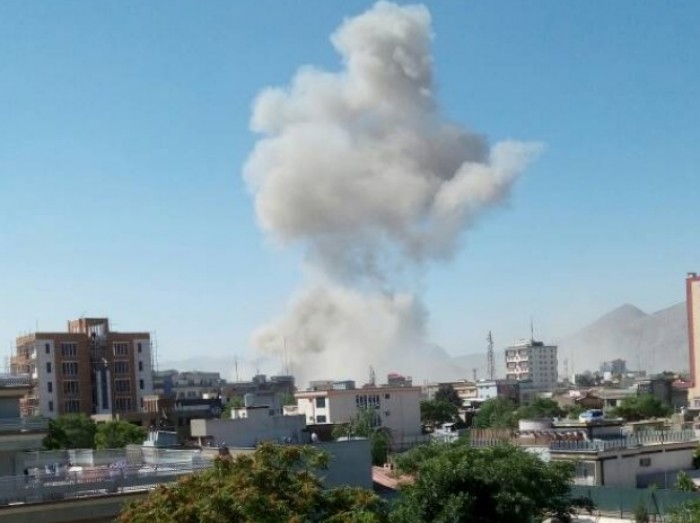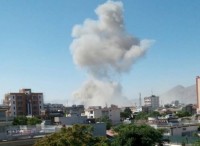Rassegne stampa

As violence sweeps Kabul, rapid pace of deportations from Europe continues
Despite major explosions in the capital, people were deported by Norway, Sweden and Turkey
08-06-2017 - Thirty young men were deported to Kabul on June 6, on a Turkish Airlines flight from Istanbul. The deportation comes as Afghanistan is again wracked by violence. Less than a week ago, a bomb in the Afghan capital killed around 150 civilians and injured 500 more. Two days later, on June 2, the police opened fire on a demonstration, killing seven. Another three explosions then cost the lives of at least 22 people. Despite this, the men were being deported – by Norway, Sweden and Turkey.Those being deported from Turkey were being sent back as part of the EU-Turkey deal, which sees Turkey getting paid to maintain Europe’s frontiers. The men are deported as undocumented migrants, with no chance of having an asylum claim examined, let alone granted. Those being deported from Scandinavia may well have had their claims examined and rejected, though even those who have claims accepted are told Kabul remains safe. One of the officials from Norway told me that he had faith in his system. But given the volatility of the situation, such assertions need to be re-examined. The German chancellor, Angela Merkel, for example, responded to the attacks by suspending all deportations from Germany.
Over the last five months, I have witnessed this process on each of the flights I have taken from Istanbul to Kabul, noting each time the apparent indifference of European escorts and Turkish officials. But this latest flight was particularly shocking given what has just happened.
As I spoke to the young men while boarding, and asked why, in the light of the shocking recent events, the deportations were going ahead, the Turkish police threatened to arrest me. Meanwhile, the Scandinavian escorts pushed me away physically, telling me to leave. But I had a ticket for the same flight.
On the tarmac, the young men were taken off the buses and boarded first. Job accomplished, the Turkish officials engaged in horseplay with each other and took selfies. My seat was at the back of the plane, where some of the young Afghans were seated between their escorts (others were just accompanied to the plane). Taking my seat, I asked the young men in Dari – a Persian language spoken in Afghanistan – whether they had anyone in Kabul. A handful said yes; the others shook their heads.
I asked the escorts, a group of around 15 men and one woman, since Kabul was considered safe, if they would be willing to join me for a drink or dinner on arrival. My invitation was met with silence. Shortly afterwards, the stewardesses came to tell me that they had found a nicer seat for me near the front of the plane. I refused politely and they insisted gently, explaining that it was all police at the back of the plane and they would be noisy.
Blocked
I thanked them for their concern and said that I preferred to stay. This time I was told that the Norwegian senior police officer had requested that I be moved. I replied that since we were in Turkey, a Norwegian police officer could not tell me what to do, and that in the plane, only the pilot had authority. At which point, the police chief, a jolly bearded man in his 50s said that he did not want me speaking to his group. I reassured him that I had nothing more to say to his staff – but he wanted a promise that I would not speak to their charges either.
I explained that he did not have the right to stop me, that I had no intention of disrupting the flight (though on reflection perhaps I should have). I also said that since he and his officers would not be leaving the airport but taking the next flight back to Istanbul, and his “deportees” would be left to their own devices, I planned only to give them my name and phone number so they would have a contact in the city.
He agreed, said he respected my position and offered his hand. I explained that I could not respect his position and refused to shake. Ten minutes later, the pilot came to see me and said I would have to move seats. Having no other choice, I said they could not stop me speaking to them when we landed, and left to sit beside a group of about ten “voluntary” returnees. These men were all being returned from Turkey and didn’t have escorts.
The young man across the aisle looked worried. I asked if he had family in Kabul. “No – they are all in Turkey,” he said. “I have no one left. We are from Kunduz [a city in northern Afghanistan]. We all left last year when it fell to the Taliban. I cannot go back.”
I asked four of them if they had “signed a paper” (agreeing to return voluntarily). All had, and in response to my query, explained they had had no choice. They had been kept in camps, one for six months, and told they would not be released until they signed a paper agreeing to be returned. One man, who had been six months in a camp, explained he would try to leave again as soon as he could.
“What choice do I have?”
//www.business-standard.com/article/international/as-violence-sweeps-kabul-rapid-pace-of-deportations-from-europe-continues-117060700138_1.html
Redazione
Rassegne stampa
19-04-2024 - Giovedì scorso gli Stati Uniti hanno impedito al Consiglio di Sicurezza dell’ONU di portare avanti la richiesta palestinese di essere riconosciuta...
16-04-2024 - KABUL (Pajhwok): Iran and the US have swapped threats at an emergency meeting of the United Nations Security Council, with Tehran and Tel Aviv branding...
16-04-2024 - BAMYAN CITY (Pajhwok): More than 130,000 tourists, including foreigners, visited central Bamyan province to satisfy their curiosity about ancient monuments...
02-04-2024 - The Taliban-run railway authority announced Thursday the signing of a contract with Russian company Gamma for the fourth segment of the second phase...
25-03-2024 - The office of the economic deputy PM tweeted that Mullah Abdul Ghani Baradar said that many facilities will be provided to the residents of Kabul with...





